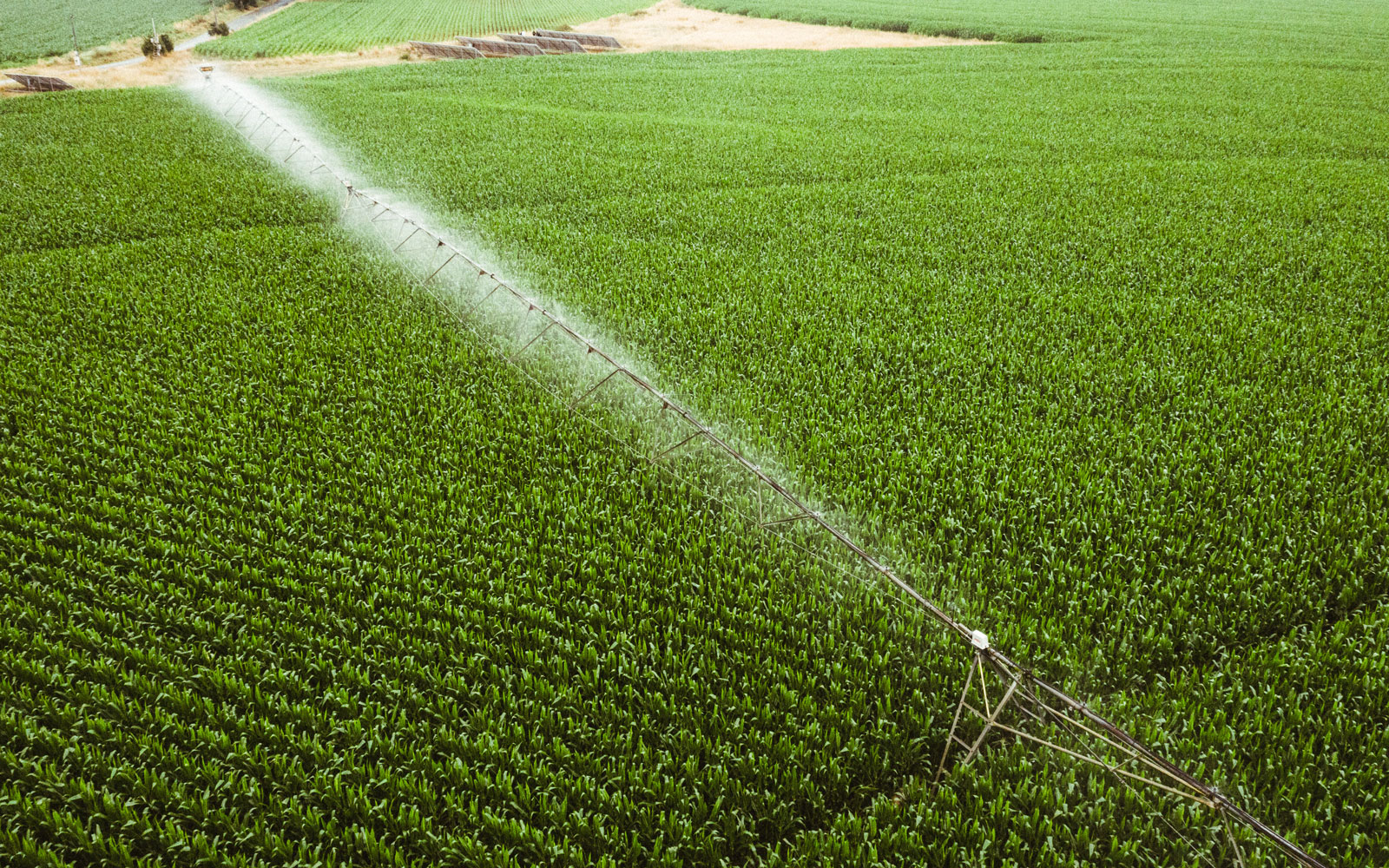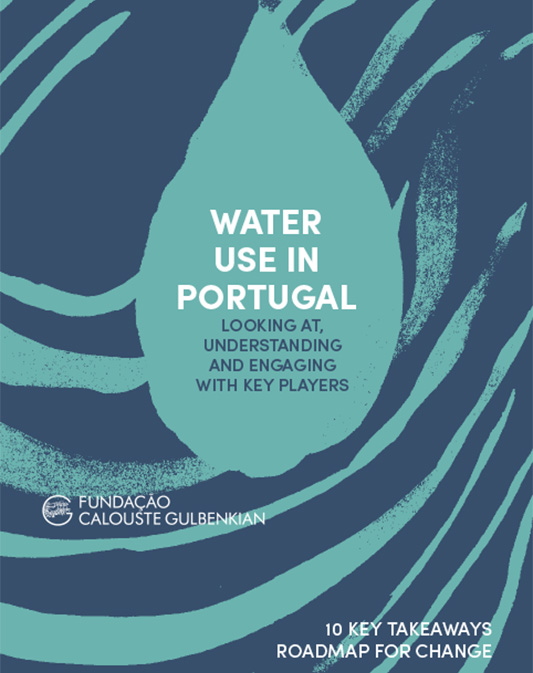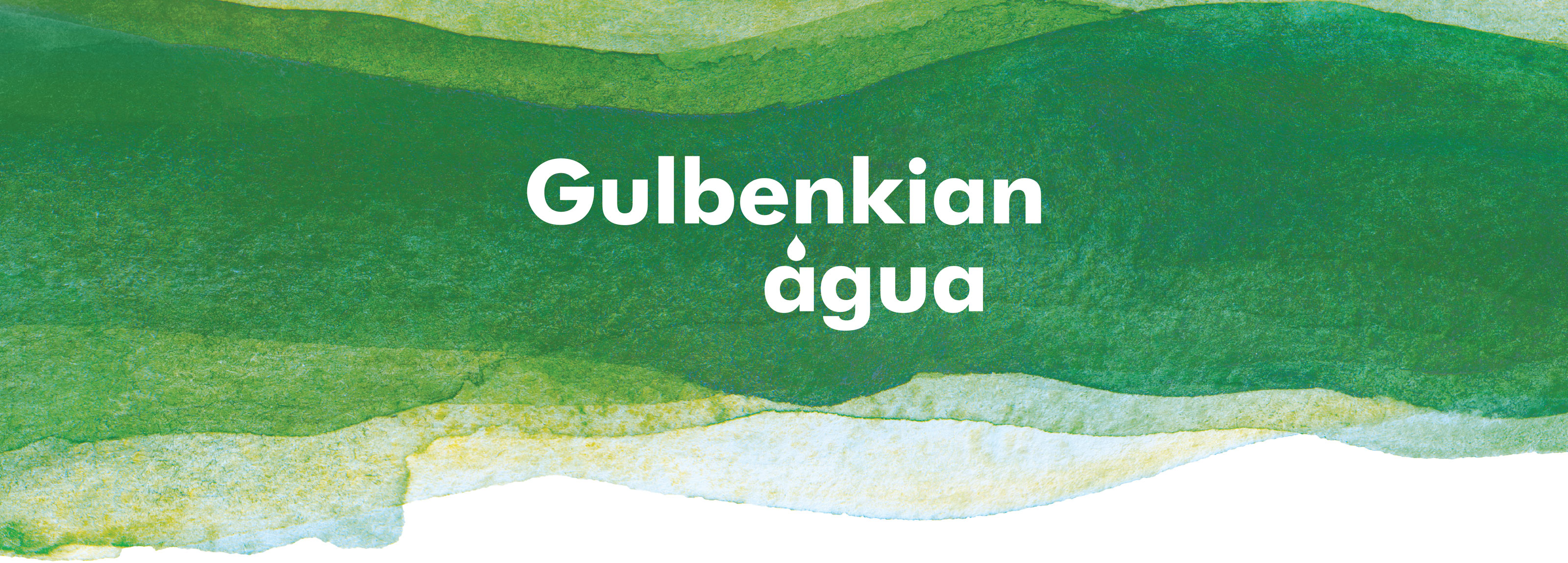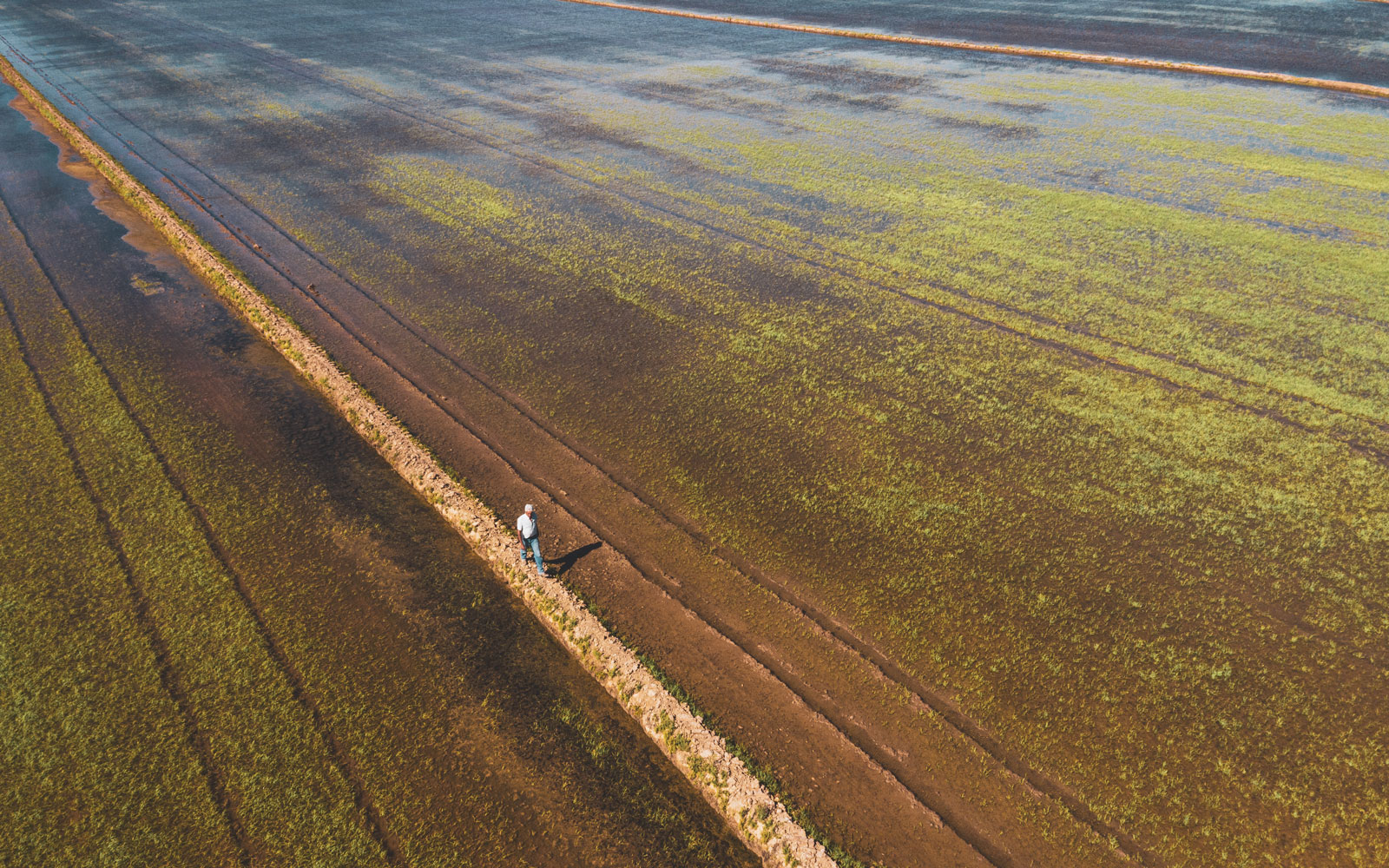




In Portugal, the agri-food industry accounts for 75% of total water used, a sharp contrast with the European average (24%) and higher than the world average (69%), although in line with Mediterranean countries such as Spain and Greece. This is explained by the use of irrigation, where the watering of crops offsets the heat and the lack of rain typical of the year’s warmer seasons.
To gain a better understanding of the issue, the Calouste Gulbenkian Foundation commissioned a study from C-Lab on “Water Use in Portugal”, conducted between 2019 and 2020.
The findings of the study now guide the Foundation’s actions for promoting water efficiency and a new water culture in the agri-food industry in Portugal, across the entire value chain.
Making a difference and thinking in the long term is a challenge that must be met by all stakeholders: farmers, the agricultural sector, the food industry, large-scale distributors and, ultimately, the end-consumer.
Promoter: Associação Nacional dos Produtores de Milho e Sorgo (ANPROMIS)
Partners: Associação Nacional de Produtores de Proteaginosas, Oleaginosas e Cereais (ANPOC), Centro Operativo e Tecnológico do Arroz (COTARROZ), Centro Operativo e Tecnológico de Regadio (COTR), Instituto Português do Mar e da Atmosfera (IPMA)
Crops: maize, grains and rice
Regions: Alentejo, Ribatejo and Mondego Valley
This project held ten training and knowledge transfer initiatives for 500 farmers between March and July 2021. It also included a survey to determine the profile of the trainees in order to design more personalised future strategies for more efficient irrigation management. An educational video on good practices in efficient water use was also produced to reach 6,500 farmers.
Promoter: Centro Operativo Tecnológico Hortofrutícola Nacional – Centro de Competências
Partners: Torriba, Campotec, Hidrosoph, Federação Nacional das Organizações de Produtores de Frutas e Hortícolas
Crops: Industrial apples, pears and tomatoes
Regions: Tagus Valley and Western Region
This project focused on implementing demonstration pilots on farms equipped with optimised solutions for monitoring soil moisture. These pilots were designed for 25 farmers with three different profiles (mentors, followers and technophobes), in order to outline technical guidelines for implementing efficient irrigation technology based on the needs identified for each profile. The project also included training and demonstration activities (workshops and networking events), international exchanges, and the production of multimedia content.
Promoter: Comissão Vitivinicola Regional Alentejana
Partners: Instituto Superior de Agronomia (ISA), Centro Operativo e de Tecnologia de Regadio (COTR), Centro de Estudos e Promoção do Azeite do Alentejo
Crops: Vineyards and olive groves
Region: Alentejo.
This project included six demonstrations of good field practices for more than 30 farmers on the integrated and sustainable resource management (water, energy and fertilisers) on standard plots with vineyards and olive groves in full production and different levels of innovation adoption. A promotional video and a free handbook of good irrigation practices for vineyards and olive groves were also produced. A regional irrigation warning system was developed at the same time, and knowledge exchange events were held for a wider group of (more than 80) farmers.
Promoter: Associação para o Desenvolvimento da Viticultura Duriense
Partners: Companhia Geral da Agricultura das Vinhas do Alto Douro - Real Companhia Velha, Sociedade Vitivinícola Terras de Valdigem, Sogrape Vinhos, Symington Family Estates
Crops: Grape-bearing vines
Region: Douro
This project included demonstrations for 100 farmers on four pilot farms, complemented by the production of a handbook of good irrigation practices, audiovisual material, in collaboration with the mentor farmers responsible for organising the technical visits, and knowledge exchange and transfer activities for between 200 and 250 winegrowers.
Promoter: Escola Superior Agrária de Santarém (Instituto Politécnico de Santarém)
Partners: Terrapro, Associação de Agricultores do Ribatejo, Azeitonices, Casa Relvas
Crops: Olive groves
Regions: Alentejo and Ribatejo
This project involved demonstrations for groups of between 15 and 25 farmers in a demonstration field, carried out at three different stages of the crop cycle, to encourage the discussion between producers of their views at different stages of knowledge maturity.
During the project, new technologies were installed in the fields of two “trainee” producers, at different stages of use and implementation of water management technologies, as a way of demonstrating the impact of these practices over the course of a campaign to other producers and providing insight, from a practical point of view, into the challenges and opportunities that come with implementing these technologies. Educational resources such as videos, leaflets and open online courses were also developed.
This project serves to demonstrate good practices in efficient irrigation management and was created based on the experience and knowledge of the teams from two of the projects supported in the 1st phase – H2OptiDemo and H2Oliva.
The goal is to transfer knowledge and train farmers in integrated resource management, focusing in particular on water use, by following a learning-by-doing methodology. To this end, demonstration fields (mentors) will be used where irrigation management practices are implemented: insufficient irrigation in olive groves, underground irrigation in orchards and new water sources in perennial crops and at additional producers (trainees), with different levels of technological maturity, to demonstrate the ease and viability of the different practices and decision-making technologies. Building on the work carried out in the previous projects, there is a cross-cutting objective to enhance the work already done and the monitoring previously carried out, in order to improve the use of the equipment already installed by extracting more reporting data from it, but also to support faster decision-making by farmers and measure the impact of these decisions.